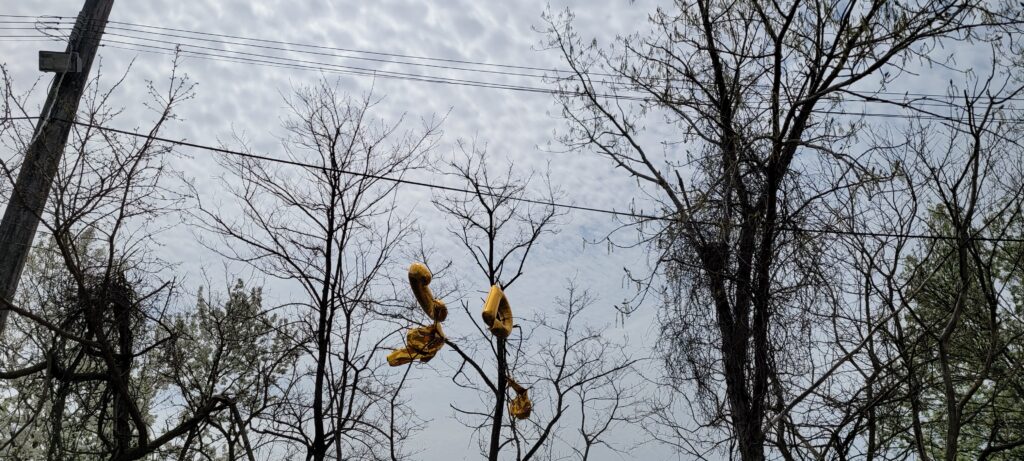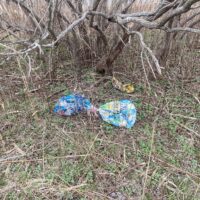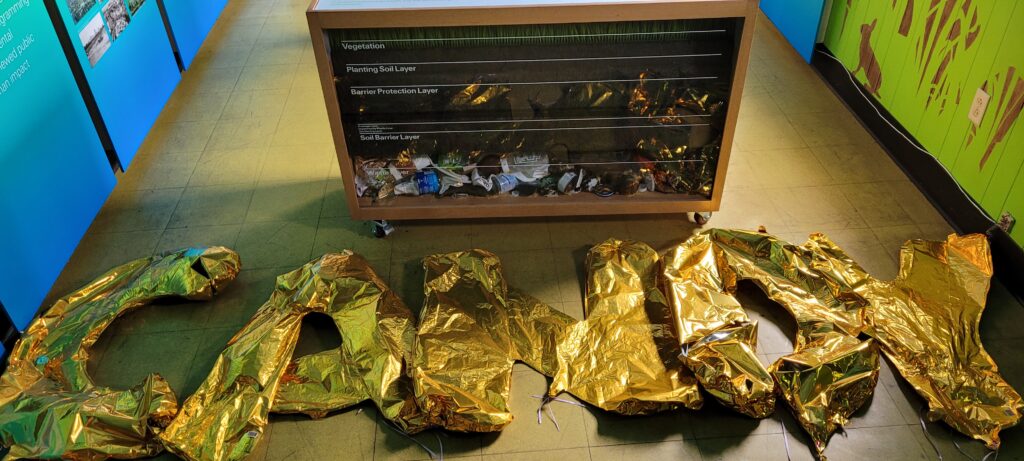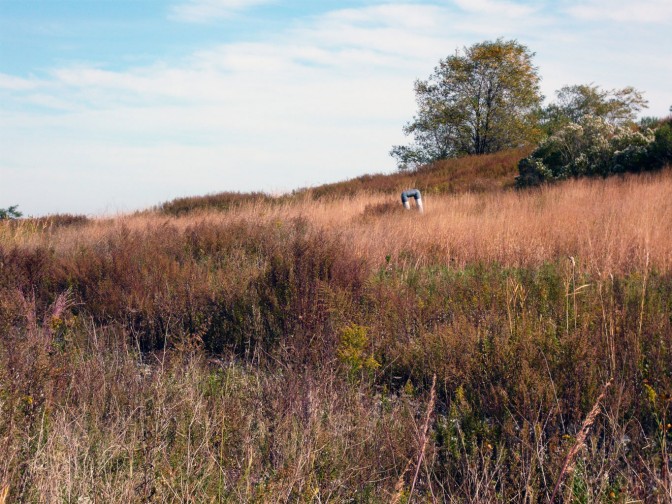Balloons: Up, Up, and into the Waterways!

As the leaves are filling out trees this spring, you may be starting to notice fewer plastic bags entangled in the bare branches due to the NYC plastic bag ban in 2020. However, the waving metallic and brightly colored ribbons from balloon litter have not gone unnoticed. This is particularly true this year, where outdoor celebrations and drive-through birthdays have become the norm.
 Balloons are far less attractive when found tangled around a shrub or washed up on our beaches. Not only do they become unsightly litter, balloons are harmful to wildlife. Balloons that land in our waters are ingested by whales, dolphins, and sea turtles; which mistake the balloons as food. Birds can become tangled in balloon littler that blows into trees, shrubs and other structures.
Balloons are far less attractive when found tangled around a shrub or washed up on our beaches. Not only do they become unsightly litter, balloons are harmful to wildlife. Balloons that land in our waters are ingested by whales, dolphins, and sea turtles; which mistake the balloons as food. Birds can become tangled in balloon littler that blows into trees, shrubs and other structures.
There are two major types of balloons; latex and mylar. Latex balloons are considered biodegradable, however, this process takes many months to years, giving too much time to cause harm to the wildlife that may encounter them. Mylar balloons are  typically larger than latex balloons, are made of polyester, and have a metallic look. Mylar balloons are not biodegradable. Lastly, helium—the gas used to fill most balloons—is not a sustainable resource. Over-use of helium could impact prices of this valuable gas, which is also used in important medical equipment like MRI machines and ventilators.
typically larger than latex balloons, are made of polyester, and have a metallic look. Mylar balloons are not biodegradable. Lastly, helium—the gas used to fill most balloons—is not a sustainable resource. Over-use of helium could impact prices of this valuable gas, which is also used in important medical equipment like MRI machines and ventilators.
In preparation for the return of our nesting grassland birds, last week, the Freshkills Park team organized a balloon clean up. We searched the entire park for wayward balloons. More than 75 balloons (and many pieces of balloons) were collected and disposed of. In addition to balloons, other debris recovered included potato chip bags and plastic shipping wrapping.
While preparing for your next celebration, consider alternatives to balloons that are more sustainable and do not pose threats to wildlife. Reusable banners, lanterns, paper or wood flowers, and kites all make great alternatives to balloons. In addition, less balloon litter helps keep our environment more aesthetically pleasing and safer for the wildlife that inhabits it.





